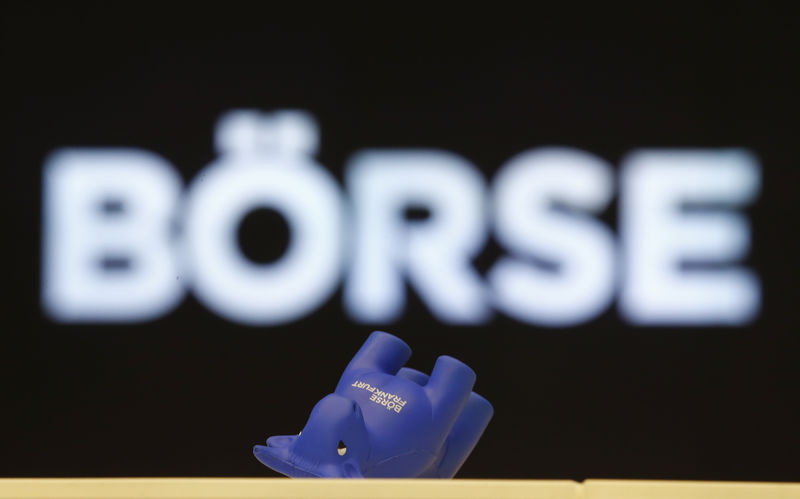By Geoffrey Smith
Investing.com -- It used to be said that when the U.S. sneezes, Europe caught a cold. That may still be true, but what is also true that when China gets off its sick bed, Europe’s stock markets go for a run.
After a brief setback on Thursday morning in the wake of the U.S.-North Korea summit breakdown, European markets are again racing higher, taking their cue from Asian markets.
The Stoxx 600 was up 0.7% at 375.46 by 04:20 AM ET (0920 GMT). Germany's Dax led the way, rising 1.2%, while the U.K. FTSE 100 lagged, rising only 0.6%.
Asian markets had rallied on two things overnight: first, MSCI announced it would give a much greater weighting to China’s mainland shares in future, triggering a sharp rally in that market; second, the Caixin manufacturing survey showed a surprising uptick in February, further raising hopes that the global economy is bottoming out after the slowdown at the end of last year.
Add stronger-than-expected retail sales out of Germany this morning, a slight upward revision to the Eurozone purchasing managers index for February and a much steeper-than-expected fall in joblessness in Germany, and a very broad-based rally this morning becomes easier to understand.
However, it also weakens the case for action by the European Central Bank at its policy meeting next week. Normally, that would be a negative for stocks, but as former IMF economist Ashoka Mody argued in a recent blog post, the Eurozone economy now appears to react less to ECB policy than it does to developments in global trade.
The fact that the narrower Stoxx 50 index is being led this morning by luxury goods groups Kering (PA:PRTP) and LVMH (PA:LVMH) and a bunch of trade-sensitive auto stocks seems to support Mody’s argument.
Among the other individual stocks standing out are U.K. fund manager Jupiter (LON:JUP), which is up 10% after accelerating a changeover of its top management and publishing full-year figures that were less awful than expected. The stock has been one of the most shorted in the London market, and was thus vulnerable to short-covering. Royal Dutch Shell (AS:RDSa), meanwhile, is trailing the market, rising only 0.3% after news that Dutch prosecutors are preparing to charge it over allegations of bribery in Nigeria.
